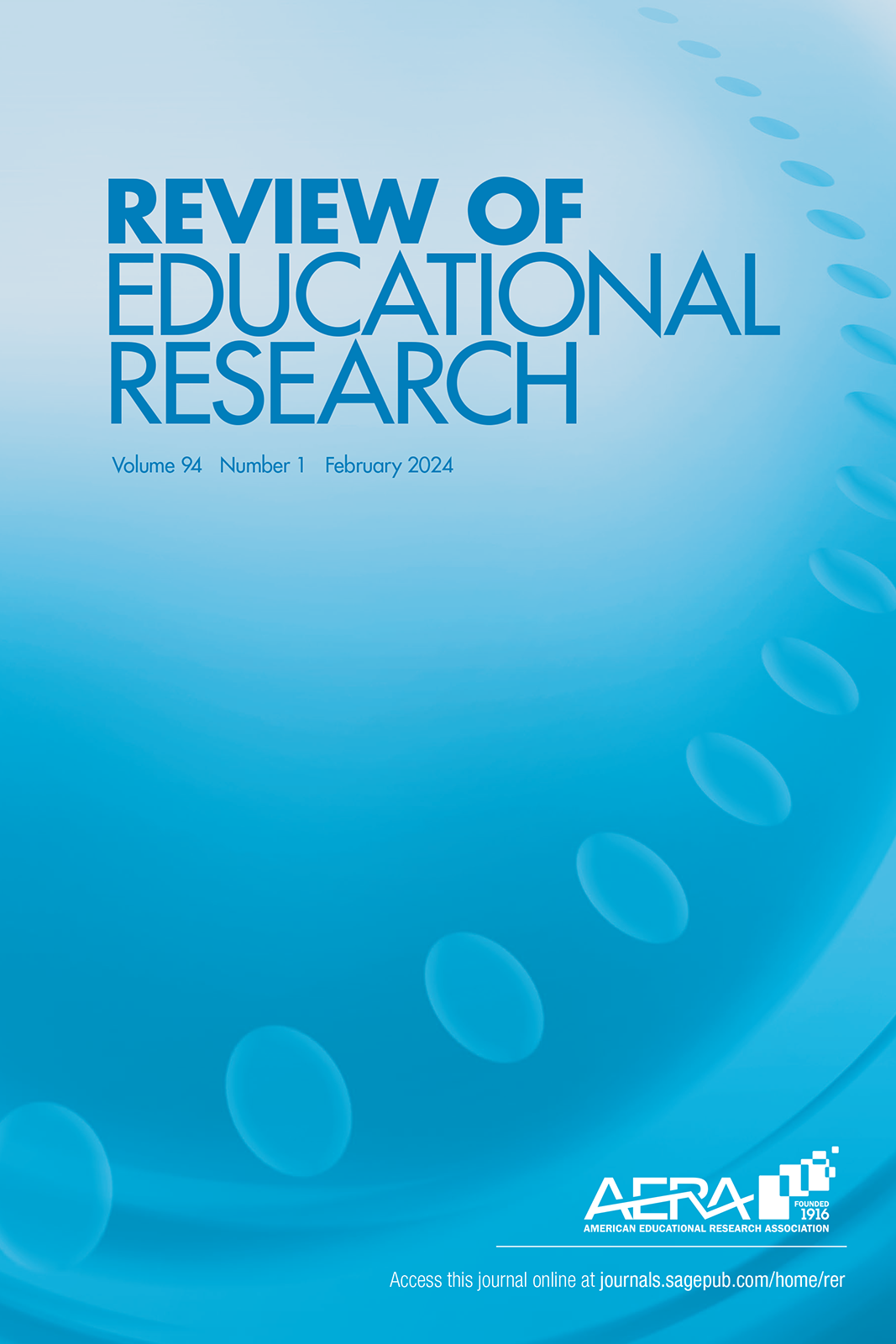阅读和写作的关系不是统一的:它们在语言粒度、发展阶段和测量上有所不同
IF 7.4
1区 教育学
Q1 EDUCATION & EDUCATIONAL RESEARCH
引用次数: 1
摘要
我们进行了一项元分析来调查阅读与写作的关系。除了整体关系之外,我们系统地研究了语言粒度(单词阅读和拼写相对于阅读理解和书面作文)、阅读理解测量(例如,选择题、开放式、完形填空)、书面作文(例如,写作质量、写作效率、写作流畅性、写作语法)和阅读和写作发展阶段(作为代理的年级水平)之间关系的调节作用。共有395项研究(k = 2265, N = 120,669)符合纳入标准。总体而言,阅读和写作密切相关(r = 0.72)。然而,这种关系因阅读和写作的子技能而异,例如单词阅读和拼写密切相关(r = 0.82),而阅读理解和书面写作则适度相关(r = 0.44)。此外,小学生的单词阅读-拼写关系(r = 0.82)强于大学生/成人(r = 0.69)。阅读理解与书面写作的关系因阅读理解和书面写作的测量而异,选择题和开放式任务测量的阅读理解与写作质量的关系强于口头复述任务测量的阅读理解;阅读理解与写作质量、写作词汇量、写作句法和写作习惯的关系中等,与写作效率和写作流畅性的关系较弱。信度越高,单词阅读和拼写之间的关系越强,字母语言的单词阅读和拼写之间的关系(r = 0.83)强于汉语(r = 0.71)。这些结果为阅读和写作之间关系的本质增加了重要的细微差别。本文章由计算机程序翻译,如有差异,请以英文原文为准。
Reading and Writing Relations Are Not Uniform: They Differ by the Linguistic Grain Size, Developmental Phase, and Measurement
We conducted a meta-analysis to investigate reading-writing relations. Beyond the overall relation, we systematically investigated moderation of the relation as a function of linguistic grain size (word reading and spelling versus reading comprehension and written composition), measurement of reading comprehension (e.g., multiple choice, open-ended, cloze), and written composition (e.g., writing quality, writing productivity, writing fluency, writing syntax), and developmental phase of reading and writing (grade levels as a proxy). A total of 395 studies (k = 2,265, N = 120,669) met inclusion criteria. Overall, reading and writing were strongly related (r = .72). However, the relation differed depending on the subskills of reading and writing such that word reading and spelling were strongly related (r =.82) whereas reading comprehension and written composition were moderately related (r =.44). In addition, the word reading-spelling relation was stronger for primary-grade students (r =.82) than for university students/adults (r =.69). The relation of reading comprehension with written composition differed depending on measurement of reading comprehension and written composition—reading comprehension measured by multiple choice and open-ended tasks had a stronger relation with writing quality than reading comprehension measured by oral retell tasks; and reading comprehension had moderate relations with writing quality, writing vocabulary, writing syntax, and writing conventions but had weak relations with writing productivity and writing fluency. Relations tended to be stronger when reliability was higher, and the relation between word reading and spelling was stronger for alphabetic languages (r = .83) than for Chinese (r = .71). These results add important nuances about the nature of relations between reading and writing.
求助全文
通过发布文献求助,成功后即可免费获取论文全文。
去求助
来源期刊

Review of Educational Research
EDUCATION & EDUCATIONAL RESEARCH-
CiteScore
24.10
自引率
2.70%
发文量
28
期刊介绍:
The Review of Educational Research (RER), a quarterly publication initiated in 1931 with approximately 640 pages per volume year, is dedicated to presenting critical, integrative reviews of research literature relevant to education. These reviews encompass conceptualizations, interpretations, and syntheses of scholarly work across fields broadly pertinent to education and educational research. Welcoming submissions from any discipline, RER encourages research reviews in psychology, sociology, history, philosophy, political science, economics, computer science, statistics, anthropology, and biology, provided the review addresses educational issues. While original empirical research is not published independently, RER incorporates it within broader integrative reviews. The journal may occasionally feature solicited, rigorously refereed analytic reviews of special topics, especially from disciplines underrepresented in educational research.
 求助内容:
求助内容: 应助结果提醒方式:
应助结果提醒方式:


